Foundation to Human and Animal Health Professions (Medicine) (Year 0)
UCAS code 789S
- Study mode
- Full-time
- Duration
- 6 years
- Start date and application deadlines
-
- Start date
- September 2025 September 2026
- Apply by:
- Starts on:
UCAS code 789S
We've set the country or region your qualifications are from as United Kingdom.
A year zero foundation programme, designed for mature students who have typically been out of formal education for some time or who have taken non-traditional qualifications, which leads to access onto a Medicine and Surgery MBChB programme.
The University of Liverpool, in collaboration with local FE partners, has developed a year zero foundation programme for Home students that leads to access onto a variety of vocational Health Studies programmes. Our Foundation to Human and Animal Health Professions (Medicine) course is for students seeking entry to to undertake the Medicine and Surgery MBChB (A100) programme.
Students seeking entry to Medicine will study a foundation year (year zero) at Carmel College, St Helens, about nine miles from the university campus, where the class sizes are small and the standards of academic achievement high before joining the Medicine programme on the University of Liverpool campus in year one following successful completion of the foundation year.
This programme is specifically targeted at Home mature and non-traditional students, who typically have taken a break from studies.
Please note that we will not consider applications from prospective students who have multiple UCAS applications for a variety of programmes, as this does not demonstrate a clear commitment.

We’re proud to announce we’ve been awarded a Gold rating for educational excellence.
Discover what you'll learn, what you'll study, and how you'll be taught and assessed.
In all modules at year zero, the study skills needed for independent study at undergraduate degree level are developed. Students are also introduced to a variety of learning methods, such as formal taught sessions, workshops and practical laboratory sessions, as well as a variety of assessment tasks, such as written assignments, in class data handling, written and practical examinations to provide a good grounding for vocational programmes.
There are some shared modules for all students, and then route specific modules to ensure the students are prepared for their chosen undergraduate programmes.
Programme details and modules listed are illustrative only and subject to change.
The School uses an integrated teaching model. The learning of medical sciences is enhanced by the clinical context of a systems-based approach. The development of understanding of clinical practice is supported by a ‘just in time’ model of academic weeks that relate to each clinical placement and case-based teaching within each placement. Specialist clinical centres from across the region provide students with a wide range of exceptional placement experiences during which students complete structured learning activities as well as taking advantage of near patient learning opportunities.
The School is at the forefront of technology enhanced learning, utilising mobile learning, virtual reality, simulation and a personalised e-portfolio to provide our students with the best possible experience and prepare them for the technological developments that will shape their future careers in healthcare.
We take the development of clinical leaders seriously and use a programme of experiential learning opportunities to develop students’ leadership and followership skills in a range of situational contexts.
The remainder of the course is delivered using a mix of interactive and didactic lecturing; case based learning, small group teaching, clinical skills and simulation workshops, Human Anatomy Resource Centre (HARC) sessions, communication skills practicals and a staged programme of research skills development.
The breadth of learning and teaching activities used within the Medical School ensures students have the underpinning knowledge and skills to become the safe clinical practitioners of tomorrow.
Both formative and summative assessment take place within the programme. There is an emphasis on assessment for learning through the use of subject specific tests such as quizzes, anatomy spotters and formative Objective Structured Clinical Examinations (OSCEs).
Summative assessment takes place at the end of each year and includes written papers and practical exams in the form of OSCES and LOCAS.
We use technology to facilitate online marking and annotated feedback of written assignments, deliver formative online tests for students at the end of each teaching block and collate and deliver OSCE data, providing students with more useful feedback as a result.
A bespoke electronic portfolio, integrated throughout the curriculum provides students with a personalised learning space where they can collect evidence and develop their skills through reflective activities. The e-portfolio charts the student learning journey over the course of the programme.
We have a distinctive approach to education, the Liverpool Curriculum Framework, which focuses on research-connected teaching, active learning, and authentic assessment to ensure our students graduate as digitally fluent and confident global citizens.
The Liverpool Curriculum framework sets out our distinctive approach to education. Our teaching staff support our students to develop academic knowledge, skills, and understanding alongside our graduate attributes:
Our curriculum is characterised by the three Liverpool Hallmarks:
All this is underpinned by our core value of inclusivity and commitment to providing a curriculum that is accessible to all students.
Studying with us means you can tailor your degree to suit you. Here's what is available on this course.
University of Liverpool students can choose from an exciting range of study placements at partner universities worldwide.
Immerse yourself in Chinese culture on an optional additional year at Xi'an Jiaotong Liverpool University in stunning Suzhou.
Spend a summer abroad on a study placement or research project at one of our worldwide partner institutions.
Every student at The University of Liverpool can study a language as part of, or alongside their degree. You can choose:
The School of Medicine is one of the largest providers of medical education in the country. Students have access to facilities such as the unrivalled Human Anatomy Resource Centre and Clinical Skills Resource Centre, as well as our Virtual Learning Environment. We also offer access to a comprehensive placement network with nationally recognised centres of excellence.
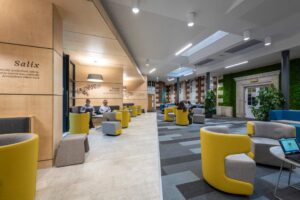
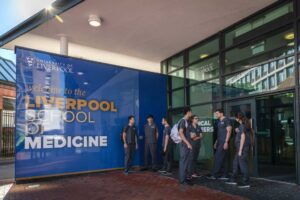
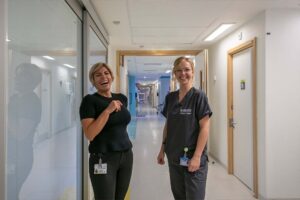
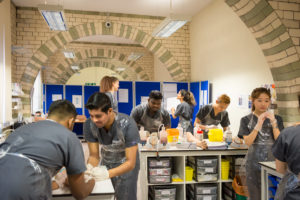
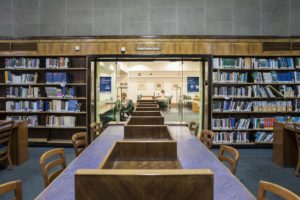

From arrival to alumni, we’re with you all the way:

Want to find out more about student life?
Chat with our student ambassadors and ask any questions you have.
Our programmes are for individuals who wish to become qualified medical practitioners. A diverse range of careers are open to you as a medical graduate, varying from medical science, perhaps laboratory-based research, through public health and the development of health care strategies to clinical practice in the hospital and community.
The programme offers considerable opportunities for students to learn, to practise and to be assessed in the following key (transferable skills):
99% of medical students at the University of Liverpool find their main activity after graduation meaningful.
(Graduate Outcomes, 2018-19.)
My qualifications are from United Kingdom.
Your tuition fees, how to pay, and other costs to consider.
Full-time place, per year - £9,535
Foundation year fee - £7,500
Year in industry fee - £1,905
Year abroad fee - £1,430 (applies to year in China)
Following the foundation years, standard course fees apply.
The tuition fees shown are correct for 2025/26 entry. Please note that the year abroad fee also applies to the year in China.
Tuition fees cover the cost of your teaching, assessment, operating University facilities such as libraries, IT equipment, and access to academic and personal support.
There are additional study costs to consider, such as replacement scrubs and lab coats, travel costs for placements, and equipment such as stethoscopes.
Year one – Students will be given their lab coats for use in the Human Anatomy Resource Centre free of charge. There is a £15 charge for any replacement white lab coats.
Year two – Stethoscope (approximately £80 upwards) and travel costs to placements at hospital trusts within the North West area (Aintree, Arrow Park, Royal Liverpool and Broadgreen and Whiston hospitals). Placement costs will vary from student to student.
Year three – Travel to placements. Placement costs will vary from student to student – see below for information on support which may be available from the School.
Year four – Four sets of scrubs are issued per student during the programme. They are issued as follows: 1 set in year 1 and the further 3 sets in year 2. If students require an additional set then they are required to purchase this themselves at a cost of £29.95. There are also elective costs which could include placement cost to the hospital, agency costs to find the placement, travel costs to the placement, accommodation and living costs, possible Public Liability Insurance costs. Placement and elective costs will vary from student to student – see below for information on support which may be available from the School.
Year five – Travel costs to placements. Placement costs will vary from student to student – see below for information on support which may be available from the School.
School travel fund and hardship fund
The School of Medicine manages a travel fund which allocates funding towards placement related travel, for those students who are not in receipt of any other placement travel related bursaries (eg from the NHS). The School fund does not cover all of the placement costs that students will incur on their clinical rotations in both secondary and primary care, from years 3 to 5. Funds are calculated on average public transport costs from the Liverpool campus to the placement site for secondary care placements only. A threshold is applied to the School travel fund and is established each year. In 2020/21 the threshold was £400 meaning some students self-funded the first £400 cost of travel to placements, after which they were able to access funding for any additional placement-related travel costs from the School’s travel fund. In addition, there is a hardship fund for placement travel, which students can apply to in years 3 to 5, if they require additional funds towards the cost of placement travel.
We offer a range of scholarships and bursaries that could help pay your tuition and living expenses.
If you’re a UK student joining an undergraduate degree and have a household income below £35,000, you could be eligible for a Liverpool Bursary worth up to £2,000 for each year of undergraduate study.
If you’ve spent 13 or more weeks in Local Authority care since age 14, you could be eligible for a bursary of £3,000 per year of study. You’ll need to be a UK student joining an eligible undergraduate degree and be aged 28 or above on 1 September in the year you start.
Are you a UK student with a Black African or Caribbean heritage and a household income of £25,000 or less? You could be eligible to apply for a Cowrie Foundation Scholarship worth up to £8,000 for each year of undergraduate study.
If you’re a UK student identified as estranged by Student Finance England (or the equivalent UK funding body), you could be eligible for a bursary of £1,000 for each year of undergraduate study.
Joining a School of Biosciences degree and have a household income of less than £25,000? If you’re a UK student, you could apply to receive £4,500 per year for three years of your undergraduate course.
Do you live in the Liverpool City Region with a household income of £25,000 or less? Did neither of your parents attend University? You could be eligible to apply for a Nolan Scholarship worth £5,000 per year for three years of undergraduate study.
Are you a UK student with a household income of £25,000 or less? If you’ve participated in an eligible outreach programme, you could be eligible to apply for a Rigby Enterprise Award worth £5,000 per year for three years of your undergraduate degree.
Are you a UK student with a household income of £25,000 or less? Did neither of your parents attend University? You could be eligible to apply for a ROLABOTIC Scholarship worth £4,500 for each year of your undergraduate degree.
Apply to receive tailored training support to enhance your sporting performance. Our athlete support package includes a range of benefits, from bespoke strength and conditioning training to physiotherapy sessions and one-to-one nutritional advice.
Joining a degree in the School of Electrical Engineering, Electronics and Computer Science? If you’re a UK student with household income below £25,000, you could be eligible to apply for £5,000 a year for three years of study. Two awards will be available per academic year.
If you’re a young adult and a registered carer in the UK, you might be eligible for a £1,000 bursary for each year of study. You’ll need to be aged 18-25 on 1 September in the year you start your undergraduate degree.
My qualifications are from United Kingdom.
The qualifications and exam results you'll need to apply for this course.
Please view the following information https://www.liverpool.ac.uk/media/livacuk/schoolofmedicine/admissions/Foundation,to,Human,and,Animal,Health,Sciences,(Medicine,route),E2025.pdf
| Qualification | Details |
|---|---|
| T levels |
T levels are not currently accepted. |
| GCSE |
5 GCSE Grade 6 (B) to include Maths, English Language, single Science to include Biology and /or Chemistry or (dual combined science). |
| BTEC Level 3 National Extended Diploma | Students currently studying BTEC level 3 will not be considered; BTEC level 2 will not be accepted in lieu of GCSE |
| International Baccalaureate | Applicants currently studying for International Baccalaureate will not be considered |
| Irish Leaving Certificate | Applicants currently studying for Irish Leaving Certificate will not be considered |
| Scottish Higher/Advanced Higher | Applicants currently studying for Scottish Highers will not be considered |
| Welsh Baccalaureate Advanced | Applicants currently studying for Welsh Baccalaureate will not be considered |
| Graduate application | Applicants who hold degrees are considered ineligible to apply to this programme. |
| Access | Applicants currently studying for an Access Diploma will not be considered. Mature students who have recently studied an access course (that is not eligible for direct entry) or have work- related qualifications will be considered. |
| Declaration of criminal background | Applicants may be expected to complete either a Declaration of Criminal Background or have a full Disclosure Barring Service check as part of their application. |
| Disability information | Additional support is given to students who have declared a disability on their UCAS application. |
| Work Experience Requirements | Evidence of knowledge and insight into the profession with emphasis on learning from work experience/observation is required. NB: Further details on specific work based experience requirements is available on the relevant degree programme pages. |
| International qualifications |
Many countries have a different education system to that of the UK, meaning your qualifications may not meet our direct entry requirements. Although there is no direct Foundation Certificate route to this course, completing a Foundation Certificate, such as that offered by the University of Liverpool International College, can guarantee you a place on a number of similar courses which may interest you. |
Have a question about this course or studying with us? Our dedicated enquiries team can help.
Last updated 28 March 2025 / / Programme terms and conditions